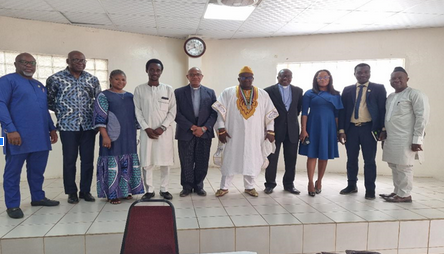The African Centre for Parliamentary Affairs (ACEPA) in partnership with the International Panel of Parliamentarians on Freedom of Religion or Belief (IPPFoRB) and the African Parliamentarians’ Association for Human Rights (AfriPAHR) is implementing a project to advance issues of Freedom of Religion or Belief in Africa. A roundtable meeting was organized in Accra and brought together Parliamentarians, […]
On the 5th of August 2023, a one-day engagement activity was organized by the Africa Centre for Parliamentary Affairs (ACEPA) in collaboration with The Gambia Parliamentary Caucus on Freedom of Religion or Belief (FoRB) with the objective to campaign for peace and peaceful co-existence in Nianija, CRR. The engagement between members of The Gambian Parliamentary caucus on[…]
The Executive Director of the African Centre for Parliamentary Affairs (ACEPA), Dr Rasheed Draman, has commended the Leadership of Parliament for revising the Standing Orders of the House. This follows Parliament on Thursday, made some raft changes to its existing Standing Orders to fit modern trends. Changes were made, such as having the Appointments Committee of Parliament[…]
CLICK HERE TO VIEW PUBLICATION
CLICK HERE TO VIEW PUBLICATION
CLICK HERE TO VIEW PUBLICATION
CLICK HERE TO VIEW THE PUBLICATION
CLICK HERE TO VIEW PUBLICATION
CLICK HERE TO VIEW PUBLICATION
CLICK HERE TO VIEW PUBLICATION

